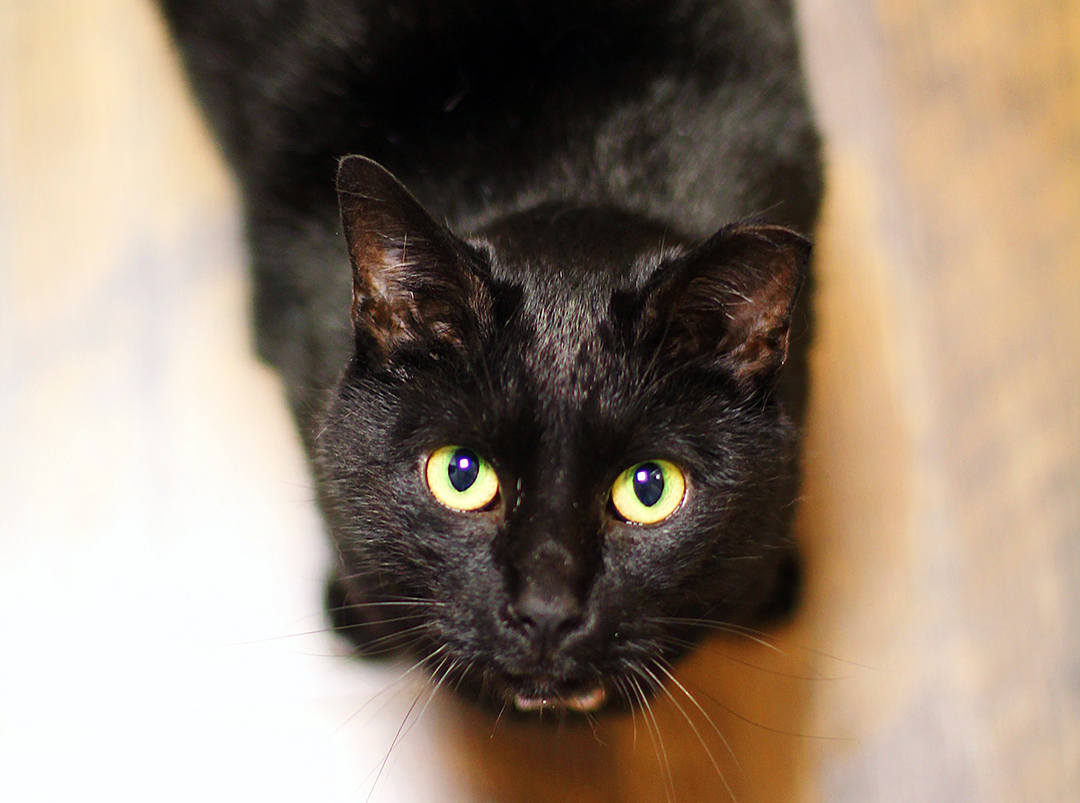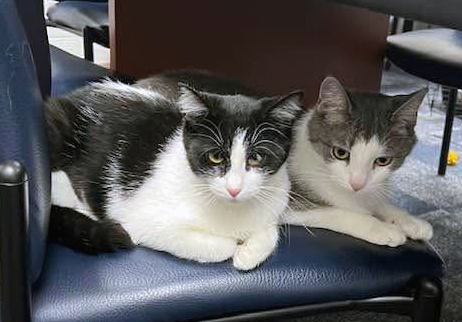Cats may not be your typical library residents, but SFU is changing that perspective.
On Oct. 9, two shelter cats – Bones and Booth – took up residence in the lower level of the library.
Led by the SFU Psychology Club, this program aims to provide a comforting space for students, while also giving the shelter cats an opportunity for a better life.
“The Psychology Club embraces animals,” said Ava Rhoads, president of the club. “We wanted to bring a new project that can bring shelter cats a new life, along with giving students a nice break with some loving cats.”
With shelters across the U.S. overwhelmed by an influx of animals, especially during kitten season, the need for such programs is critical. More than three million cats currently reside in shelters, putting significant pressure on both the animals and staff members.
“The purpose of this program is to help shelter cats by giving them space, interaction and socialization, which can facilitate their adoption,” said Shlomit Flaisher-Grinberg, Associate Professor of Psychology.
“It reduces the load on shelters and brings a sense of home and love to students’ lives. It’s also a great example of how communities and universities can collaborate.”
The program aligns with Flaisher-Grinberg’s PSYC 303 course, which typically involves six cats housed in the Science Center’s vivarium for behavioral learning purposes.
Originally, these cats were going to move into the library space, but another opportunity arose sooner and Bones and Booth arrived in Loretto from the Huntingdon County Humane Society.
Flaisher-Grinberg said both Bones and Booth were previously reserved and shy and were likely to go unnoticed at the shelter. They now have a chance to build trust and interact with people, increasing their chances of adoption.
Even if they are not adopted from someone at SFU, they will return to the shelter more socialized and confident, increasing their chances of finding a permanent home in the future.
The first step to acclimating the cats to their new environment is building trust through socialization.
“Many shelter cats don’t get adopted because they avoid human interaction,” Flaisher-Grinberg said. “Teaching them to trust people, predict regular care and build bonds is essential, especially for fearful cats.
“Some cats, like one of ours, won’t tolerate petting until they feel safe, while another spent two days hiding. We respect their space, which their future adopters will also need to do.”
A dedicated team of eight students manage the cats’ daily care, including feeding, cleaning and socialization. For these students, the program provides hands-on learning by assessing the cats’ health, emotional state and boundaries.
Students also engage in basic training techniques such as clicker training.
So far, the response to the cats from the SFU community has been overwhelmingly positive.
“The opening night was well attended, and the library staff mentioned that the space is being better used now,” Flaisher-Grinberg said. “People enjoy seeing the cats through the window and the cats are becoming more comfortable with the attention.”
Rhoads said that students and faculty ask frequently when they can visit the cats. Students can now register for 10-minute sessions to meet the cats.
“This program aims to improve the lives of both students and cats and we hope it continues for many years,” said Rhoads.


















